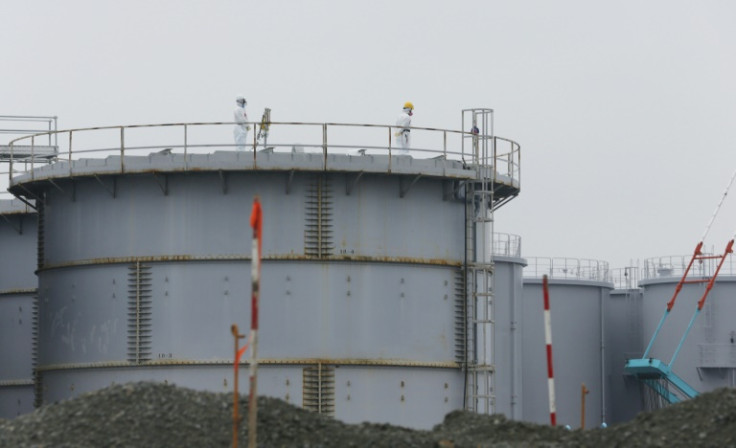Japan Announces $141M For Its Fishery Industry Amid China's Seafood Ban Over Fukushima Water

KEY POINTS
- The country will allocate approximately $340.2 million to help exporters maintain their businesses
- China was Japan's biggest seafood market in 2022, making up for 22.5% of its total seafood exports
- The IAEA says Japan's ocean discharge plan meets global safety standards
Tokyo will provide more than $140 million in additional financial relief for its fishery industry following China's blanket import ban on Japanese seafood products. Beijing announced the ban after Japan started releasing treated radioactive water from the Fukushima nuclear plant into the Pacific Ocean.
Japanese Prime Minister Fumio Kishida announced Monday the government will provide 20.7 billion yen (approximately $140.9 million) to the fishery industry as part of its efforts to keep the domestic fishery industry afloat amid China's seafood ban.
The package, which will come from reserve funds, includes measures to boost domestic consumption, establish strategies focused on finding new markets, ensure sustainable seafood production and ensure thorough and fast compensation for affected seafood exporters.
Tokyo is allocating a total of 100.7 billion yen (approximately $680.1 million) to the industry -- the Kishida administration previously designated 80 billion yen (approximately $542.7 million) for the industry. The government will allocate a total of 50 billion yen (approximately $340.2 million) from the relief package to help exporters maintain their businesses.
Last week, the Japanese PM and three of his ministers ate Fukushima fish to dispel fears that fish from the area was unsafe.
VIDEO: Japanese PM Kishida eats 'safe and delicious' Fukushima fish after the beginning of a controversial release of wastewater from the area's crippled nuclear plant pic.twitter.com/KbNEMfnhOt
— AFP News Agency (@AFP) August 30, 2023
China is one of Japan's biggest seafood export markets. Last year, China was the biggest export destination for Japanese seafood, accounting for 22.5% of its total exports. Hong Kong was in second place, receiving 19.5% of Japan's seafood exports in 2022.
Beijing banned all Japanese seafood imports last week after Japan started releasing wastewater from the Fukushima nuclear plant – which was wrecked by a massive earthquake in 2011 – into the ocean.
As China bans seafood imports from Japan over concerns about nuclear-contaminated water discharge from the Fukushima nuclear plant, fish markets shift sourcing while restaurants remove Japanese ingredients, reflecting rising anxiety and altered consumer behavior in the world's… pic.twitter.com/TrLKgNR2ka
— CCTV+ (@CCTV_Plus) August 26, 2023
Japan has since requested talks with China under the provisions of the Regional Comprehensive Economic Partnership (RCEP) agreement, saying the ban on seafood was "extremely regretful."
The Japanese Ministry of Foreign Affairs (MOFA) also responded to China's argument regarding the seafood ban. It told the World Trade Organization (WTO) Monday that the country was committed to taking appropriate measures should it detect radioactivity levels going beyond safety limits.
The MOFA also told the global trade group that it was prepared "to provide any further explanation required or to have science-based discussions to dispel any concerns or misunderstandings with regard to the safety" of its treated water discharge strategy and "to provide assurance that there is no need for any emergency measures such as the one taken by China."
Ahead of Japan's decision to release treated radioactive water into the ocean, China's Ministry of Foreign Affairs had called on Tokyo to stop the discharge plan. The ministry later said Japan "turned itself into a saboteur of the ecological system and polluter of the global marine environment."
Fukushima operator Tokyo Electric Power Company (TEPCO) has repeatedly explained that radioactivity levels of the treated wastewater were within safe limits. The company has reportedly collected some 1.34 million tonnes of nuclear water from the site in the past 12 years and treated the water for safe release. TEPCO spokesperson Keisuke Matsuo said the company will continue to conduct daily analysis over the next months to ensure the water being released meets national safety standards.
The International Atomic Energy Agency (IAEA) said in July that it found Tokyo's release plan to be "consistent with international safety standards." IAEA Director General Rafael Mariano Grossi has also said the nuclear watchdog was committed to "be present before, during and after" the process of the wastewater release.
(Updated at 8:21 a.m. on Sept. 5, 2023: This article has been updated to add details about the Kishida administration's earlier allocation of 80 billion yen to the fishery industry.)
© Copyright IBTimes 2024. All rights reserved.












